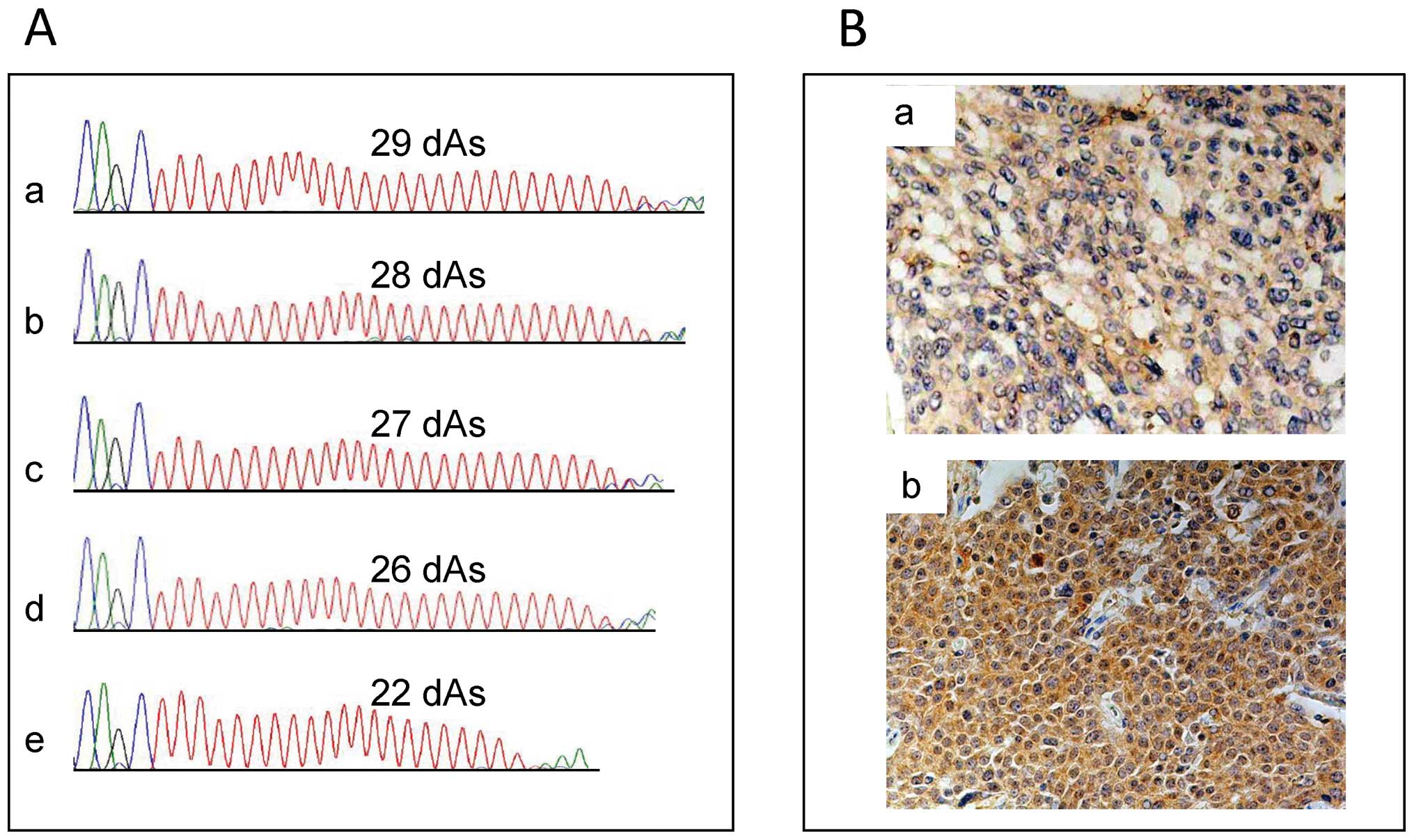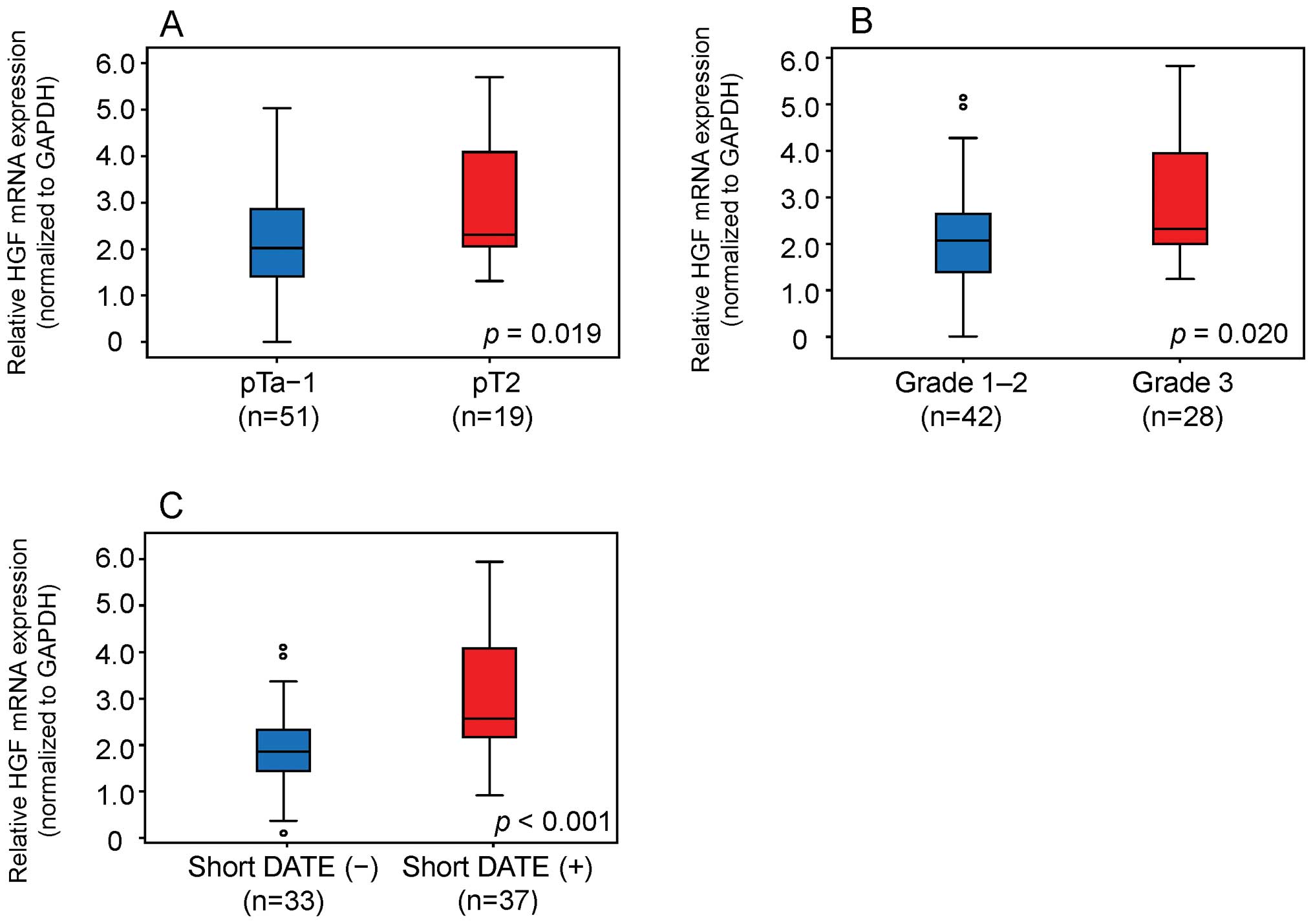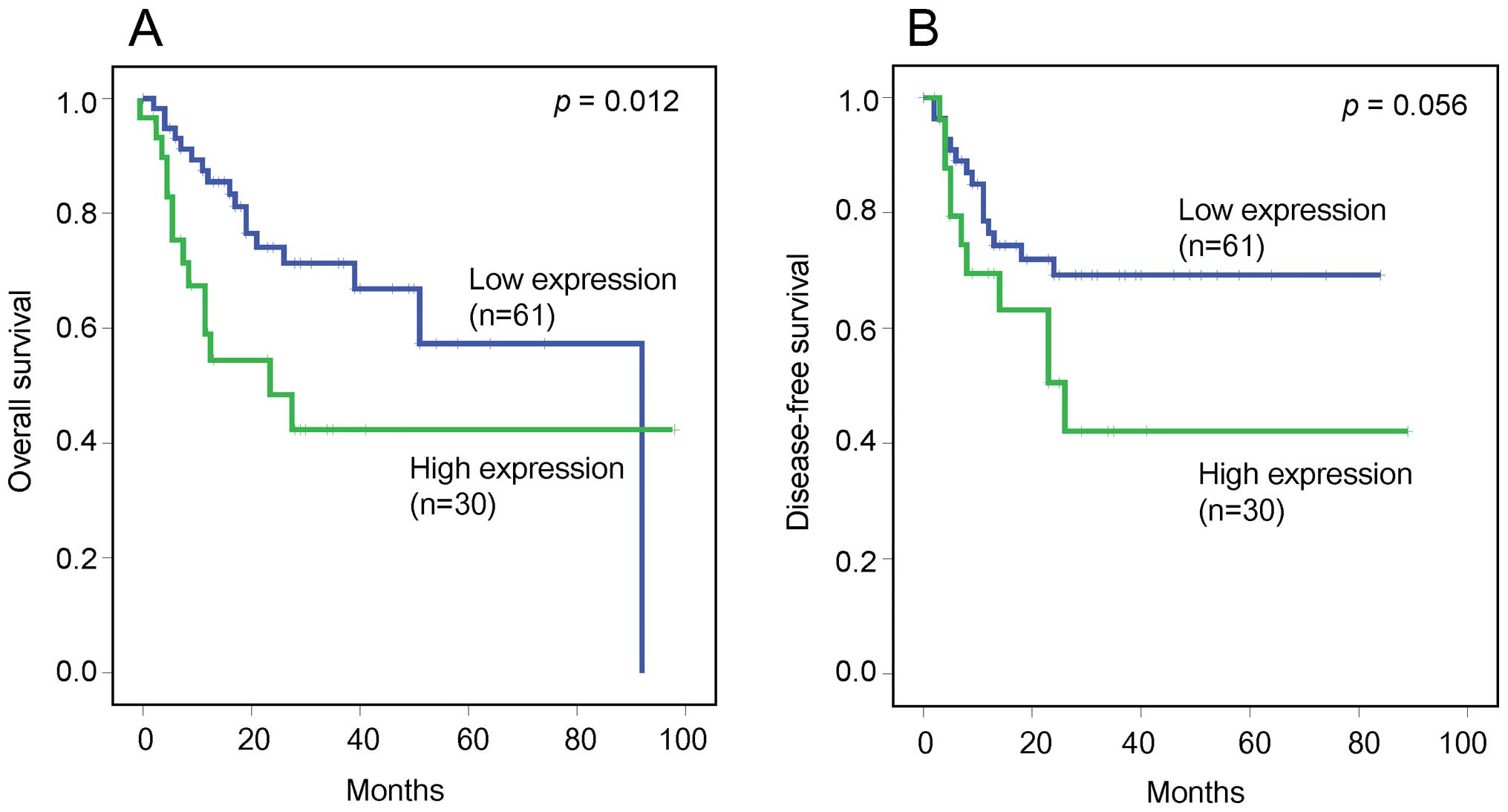|
1.
|
Trusolino L and Comoglio PM:
Scatter-factor and semaphorin receptors: cell signalling for
invasive growth. Nat Rev Cancer. 2:289–300. 2002. View Article : Google Scholar : PubMed/NCBI
|
|
2.
|
Birchmeier C, Birchmeier W, Gherardi E and
Vande Woude GF: Met, metastasis, motility and more. Nat Rev Mol
Cell Biol. 4:915–925. 2003. View
Article : Google Scholar : PubMed/NCBI
|
|
3.
|
Aune G, Lian AM, Tingulstad S, Torp SH,
Forsmo S, Reseland JE, Stunes AK and Syversen U: Increased
circulating hepatocyte growth factor (HGF): a marker of epithelial
ovarian cancer and an indicator of poor prognosis. Gynecol Oncol.
121:402–406. 2011. View Article : Google Scholar : PubMed/NCBI
|
|
4.
|
Gohji K, Nomi M, Niitani Y, Kitazawa S,
Fujii A, Katsuoka Y and Nakajima M: Independent prognostic value of
serum hepatocyte growth factor in bladder cancer. J Clin Oncol.
18:2963–2971. 2000.PubMed/NCBI
|
|
5.
|
Saigusa S, Toiyama Y, Tanaka K, Yokoe T,
Fujikawa H, Matsushita K, Okugawa Y, Inoue Y, Uchida K, Mohri Y and
Kusunoki M: Inhibition of HGF/cMET expression prevents distant
recurrence of rectal cancer after preoperative chemoradiotherapy.
Int J Oncol. 40:583–591. 2012.PubMed/NCBI
|
|
6.
|
Wu CW, Li AF, Chi CW, Chung WW, Liu TY,
Lui WY and P’Eng FK: Hepatocyte growth factor and Met/HGF receptors
in patients with gastric adenocarcinoma. Oncol Rep. 5:817–822.
1998.PubMed/NCBI
|
|
7.
|
Ueki T, Fujimoto J, Suzuki T, Yamamoto H
and Okamoto E: Expression of hepatocyte growth factor and its
receptor c-met proto-oncogene in hepatocellular carcinoma.
Hepatology. 25:862–866. 1997. View Article : Google Scholar
|
|
8.
|
Yamashita J, Ogawa M, Yamashita S, Nomura
K, Kuramoto M, Saishoji T and Shin S: Immunoreactive hepatocyte
growth factor is a strong and independent predictor of recurrence
and survival in human breast cancer. Cancer Res. 54:1630–1633.
1994.PubMed/NCBI
|
|
9.
|
Bharti A, Ma PC, Maulik G, Singh R, Khan
E, Skarin AT and Salgia R: Haptoglobin alpha-subunit and hepatocyte
growth factor can potentially serve as serum tumor biomarkers in
small cell lung cancer. Anticancer Res. 24:1031–1038.
2004.PubMed/NCBI
|
|
10.
|
Coskun U, Bukan N, Sancak B, Gunel N,
Ozenirler S, Unal A and Yucel A: Serum hepatocyte growth factor and
interleukin-6 levels can distinguish patients with primary or
metastatic liver tumors from those with benign liver lesions.
Neoplasma. 51:209–213. 2004.PubMed/NCBI
|
|
11.
|
Toiyama Y, Miki C, Inoue Y, Okugawa Y,
Tanaka K and Kusunoki M: Serum hepatocyte growth factor as a
prognostic marker for stage II or III colorectal cancer patients.
Int J Cancer. 125:1657–1662. 2009. View Article : Google Scholar : PubMed/NCBI
|
|
12.
|
Tanimoto S, Fukumori T, El-Moula G,
Shiirevnyamba A, Kinouchi S, Koizumi T, Nakanishi R, Yamamoto Y,
Taue R, Yamaguchi K, Nakatsuji H, Kishimoto T, et al: Prognostic
significance of serum hepatocyte growth factor in clear cell renal
cell carcinoma: comparison with serum vascular endothelial growth
factor. J Med Invest. 55:106–111. 2008. View Article : Google Scholar : PubMed/NCBI
|
|
13.
|
Chau GY, Lui WY, Chi CW, Chau YP, Li AF,
Kao HL and Wu CW: Significance of serum hepatocyte growth factor
levels in patients with hepatocellular carcinoma undergoing hepatic
resection. Eur J Surg Oncol. 34:333–338. 2008. View Article : Google Scholar : PubMed/NCBI
|
|
14.
|
Ma J, DeFrances MC, Zou C, Johnson C,
Ferrell R and Zarnegar R: Somatic mutation and functional
polymorphism of a novel regulatory element in the HGF gene promoter
causes its aberrant expression in human breast cancer. J Clin
Invest. 119:478–491. 2009. View
Article : Google Scholar : PubMed/NCBI
|
|
15.
|
Shimizu M, Mori T, Sakurai T and Shindo H:
Destabilization of nucleosomes by an unusual DNA conformation
adopted by poly(dA) small middle dotpoly(dT) tracts in vivo. EMBO
J. 19:3358–3365. 2000. View Article : Google Scholar : PubMed/NCBI
|
|
16.
|
Koch KA and Thiele DJ: Functional analysis
of a homopolymeric (dA-dT) element that provides nucleosomal access
to yeast and mammalian transcription factors. J Biol Chem.
274:23752–23760. 1999. View Article : Google Scholar : PubMed/NCBI
|
|
17.
|
Fox KR: Wrapping of genomic polydA.polydT
tracts around nucleosome core particles. Nucleic Acids Res.
20:1235–1242. 1992. View Article : Google Scholar : PubMed/NCBI
|
|
18.
|
Iyer V and Struhl K: Poly(dA:dT), a
ubiquitous promoter element that stimulates transcription via its
intrinsic DNA structure. EMBO J. 14:2570–2579. 1995.PubMed/NCBI
|
|
19.
|
Anderson JD and Widom J: Poly(dA-dT)
promoter elements increase the equilibrium accessibility of
nucleosomal DNA target sites. Mol Cell Biol. 21:3830–3839. 2001.
View Article : Google Scholar : PubMed/NCBI
|
|
20.
|
Reardon BJ, Winters RS, Gordon D and
Winter E: A peptide motif that recognizes A.T tracts in DNA. Proc
Natl Acad Sci USA. 90:11327–11331. 1993. View Article : Google Scholar : PubMed/NCBI
|
|
21.
|
Graziano F, Galluccio N, Lorenzini P,
Ruzzo A, Canestrari E, D’Emidio S, Catalano V, Sisti V, Ligorio C,
Andreoni F, Rulli E, Di Oto E, et al: Genetic activation of the MET
pathway and prognosis of patients with high-risk, radically
resected gastric cancer. J Clin Oncol. 29:4789–4795. 2011.
View Article : Google Scholar : PubMed/NCBI
|
|
22.
|
Lopez-Beltran A and Montironi R:
Non-invasive urothelial neoplasms: according to the most recent WHO
classification. Eur Urol. 46:170–176. 2004. View Article : Google Scholar : PubMed/NCBI
|
|
23.
|
Edge SB, Byrd DR, Compton CC, Fritz AG,
Greene FL and Trotti A: Urinary bladder. AJCC Cancer Staging
Manual. 7th edition. Springer; New York, NY: pp. 497–505. 2010
|

















